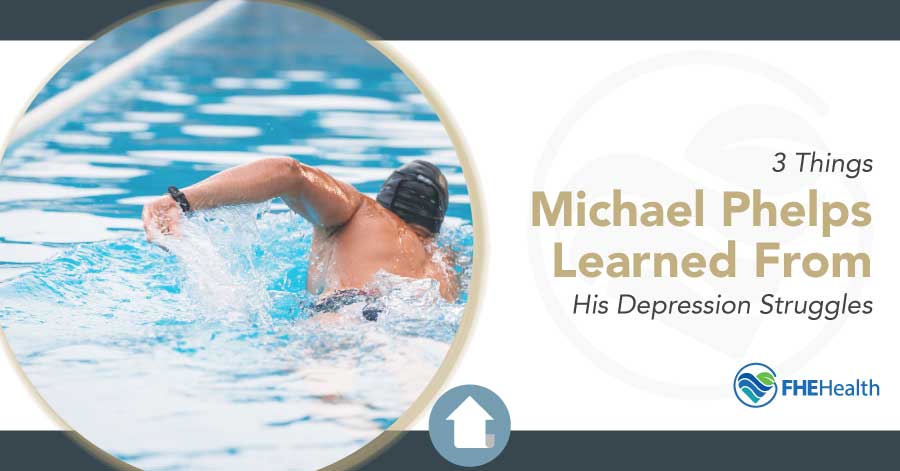
He is the most decorated Olympic competitor in history. The epitome of what a successful athlete achieves over a career. Lauded by fellow competitors and the media, and adored by his fans, Michael Phelps‘ life looked like an American success story. But for Michael Phelps, depression was a constant companion, so bad at some points that he considered taking his own life.
Michael Phelps and Substance Use
Phelps started competitive swimming when he was 15. He competed in his first Olympics in 2000. Over the next four Olympics, he won 28 medals including 23 gold, the most of any athlete ever to compete in the Olympic Games. In 2016, his final Olympics in Rio, he won five gold medals and one silver.
As he was enjoying this unprecedented Olympic success, however, he was also dealing with debilitating depression. It was particularly bad after each Olympic Games he later said. He would go home and sit on his bed for days, never leaving his room, hardly sleeping and hardly eating, moody and depressed.
In 2004, shortly after the Olympic Games, he was arrested on his first DUI charge. Then stories started to appear around Michael Phelps and addiction. In 2008, after winning eight gold medals in the Olympic Games, a photograph of him smoking a bong appeared.






